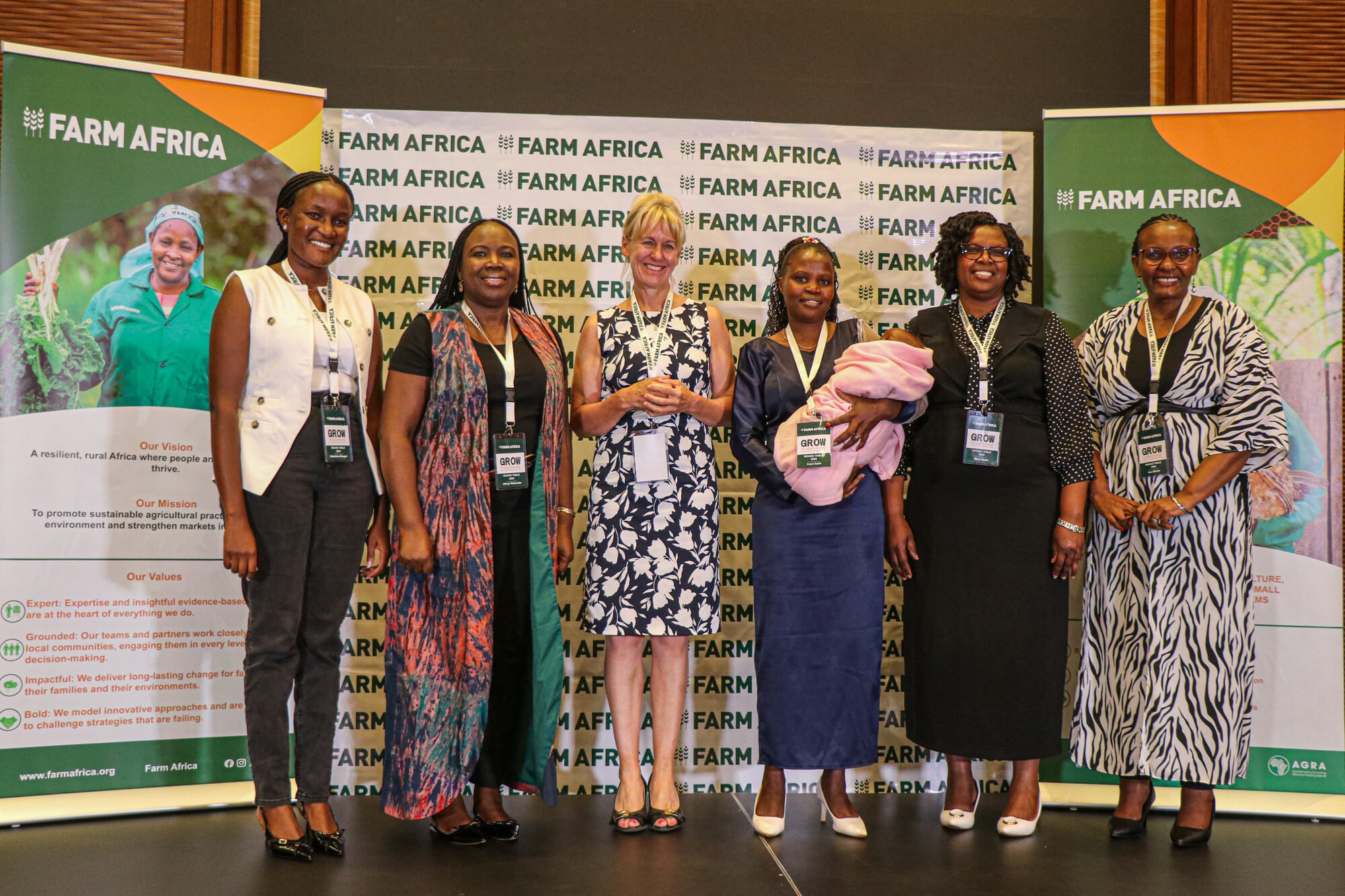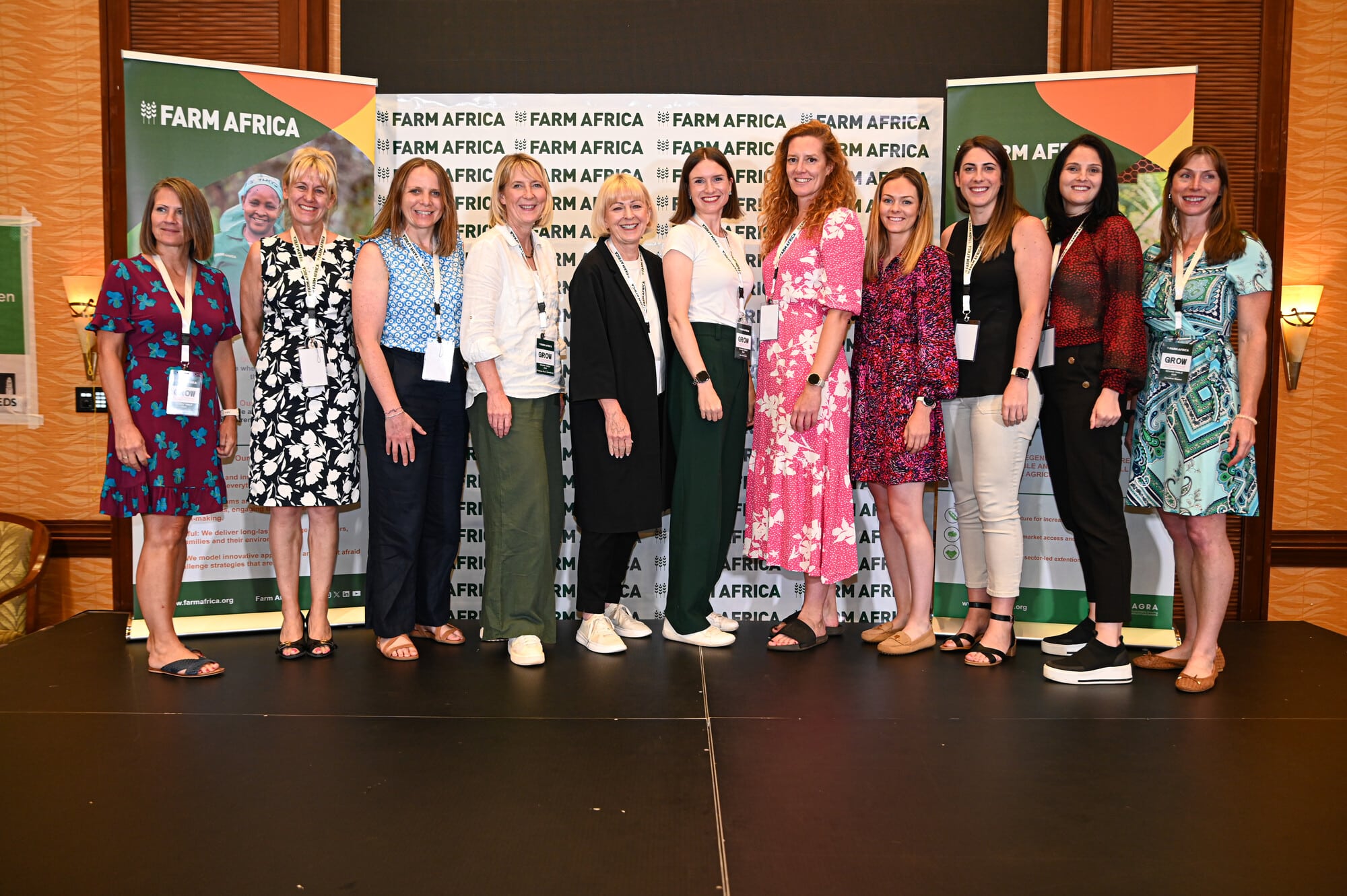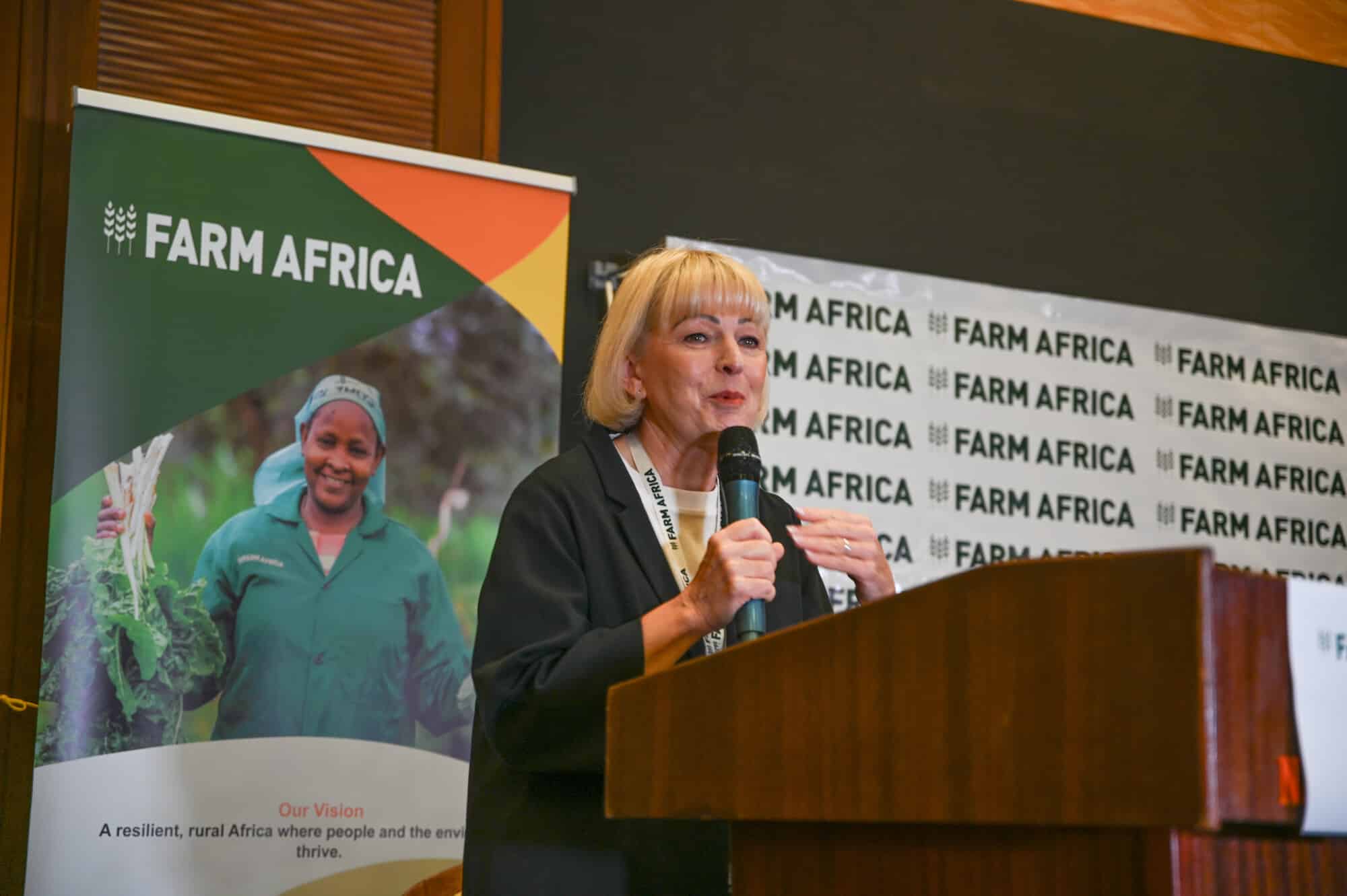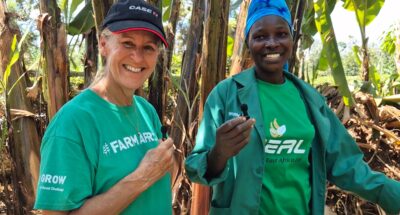News
Kenya
1 November 2024
Nairobi roundtable highlights women’s role in building resilient food systems

Photo credit: Ezra Kiriago
A roundtable event convened by Farm Africa in Nairobi in Kenya last week put a spotlight on the essential role that women play in building and scaling resilient global food systems.
The event on 25 October was attended by representatives from farming and development sectors, exporters, academics and NGOs across Kenya, as well as a team of 12 women from the UK food and farming industry who had just spent three days working on women-run farms in Embu County as part of the sponsored GROW for Good challenge.

Photo credit: Ezra Kiriago
Women make up approximately 75% of Kenya’s agricultural labour force, yet continue to face substantial barriers in accessing agrifood value chains, often dominated by men.
Women often hold vulnerable roles in agriculture, including informal, part-time, low-skilled and labour-intensive jobs. They are frequently excluded from the most profitable segments of the value chain or from crops with export potential.
The roundtable event set out to develop actionable strategies to enhance women’s participation and opportunities in agriculture.
"Women are the backbone of our food systems, yet they often grapple with challenges that limit their full potential. We have a collective responsibility to ensure that they receive the recognition, resources and support they deserve to help them participate fully in agricultural value chains. By empowering them with the right tools and knowledge, we can transform not just their farms but entire communities, creating more resilient, inclusive and sustainable food systems for all."

Mary Nyale
Country Director for Farm Africa in Kenya
The roundtable underscored the vital contribution of regenerative agriculture in fostering sustainable global food systems. Regenerative agriculture, which improves soil health and strengthens resilience to climate change, plays a crucial role not only in boosting productivity, incomes and nutrition, but also in protecting the environment.
Farm Africa is advancing these regenerative agricultural practices through a Village-Based Advisor (VBA) extension model through our Regenerative Agriculture project in Embu and Tharaka Nithi counties, funded by AGRA.
This has seen 319 entrepreneurial women, alongside 172 men, being empowered to serve as VBAs who deliver on-site training and support to smallholder farmers. These VBAs are key to helping farmers adopt climate-resilient and sustainable agricultural techniques that improve both productivity and environmental sustainability.
52,249
farmers have been trained in good agricultural practices as a result of this initiative. Women have taken a leading role in driving this change, not only as beneficiaries but as leaders in shaping the future of agriculture in Kenya.
Judith Batchelar, Farm Africa Ambassador and former Director of Sainsbury’s Brand at J Sainsbury plc, who participated in the GROW for Good challenge and the roundtable event, emphasised the critical role of regenerative agriculture in building resilience: “The global food system faces major challenges, including climate change and food security. We launched the GROW for Good Challenge because the world needs to adopt regenerative farming. Soils rich in organic matter not only absorb heavy rains and retain moisture during droughts but also improve soil health and increase yields.”

Photo credit: Ezra Kiriago
Participants at the event discussed how amplifying young and female farmers’ voices was seen as essential for scaling up the adoption of regenerative agriculture, with social media, female role models, and village-based training aiding outreach.
Addressing cultural barriers that inhibit women’s participation in agriculture, expanding female farmers’ access to financial tools like table banking, and improving access to information and technology were identified as critical for empowering women and promoting adoption of regenerative agriculture.
Participants also emphasised that enhancing farmers’ access to markets through branding, certification and private sector support—such as fixed-price contracts and distribution networks—could make regenerative agriculture both accessible and profitable for smallholder farmers.




